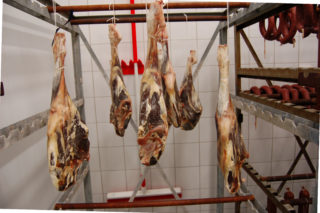An analysis by Norwegian scientists has found a low level of heavy metals in processed fish products in the country.
Commercially available items were collected from 2015 to 2018 and analyzed as composite samples for mercury, lead, arsenic, and cadmium.
Levels of cadmium, lead, and arsenic were low and human exposure to these metals would be minimal from consumption of the tested seafood products. Dietary advice from health authorities in the country is to have fish for dinner no more than two to three times a week.
Mercury levels were below the EU maximum limit for this contaminant in fish. However, children, who are high consumers might be at risk of exceeding the tolerable weekly intake for methyl mercury, when eating products with the highest mercury levels.
Mercury in fish cakes
In all products, levels of lead were below the detection limit of the techniques used and there was also a low level of arsenic in all items.
Previous studies have looked at the content of heavy metals in pure fish fillets. Items analyzed in the current study included fish fingers (fish sticks), fish cakes, a fish and macaroni dish, fish pudding and caviar.
Fish cakes had the highest level of mercury but they also had the most pure fish in them.
Researcher Lisbeth Dahl said taking the highest mercury value found, a portion of 150 grams of fish cakes will contribute 64 percent of the weekly intake for a child weighing 15 kilograms.
Scientists said fish cakes should not be avoided as previous research found they had important nutrients, especially for children, and that they are good sources of iodine, omega-3 and vitamin D.
Findings, published in the journal Food Additives & Contaminants: Part B, come from a project by the Norwegian Institute of Marine Research and Norwegian Food Safety Authority (Mattilsynet).
Meat firms audited

Meanwhile, Mattilsynet has assessed the production, hygiene and traceability of more than 100 local producers of meat products and found the manufacturers generally have good expertise, routines and control.
From September to November 2019 inspectors went to 103 sites. More than half of them received no comments or only guidance on the regulations.
With the growth in the production and sale of local food comes a need to check if producers comply with the regulations and whether they fulfill their responsibility for ensuring consumers get safe meat products, said authorities.
Eight enterprises were found with minor deficiencies and in 39 companies, one or more regulatory violations were registered. Inspectors did not find conditions that gave a basis for evaluating production methods or discover any products that were unsafe.
Most deviations were related to hazard analysis critical control point plans and sampling. Other deficiencies were related to maintenance of premises and cleaning. Two companies could not document from whom they purchased meat raw materials and three firms did not know who they were supplying animal food to.
(To sign up for a free subscription to Food Safety News, click here.)

